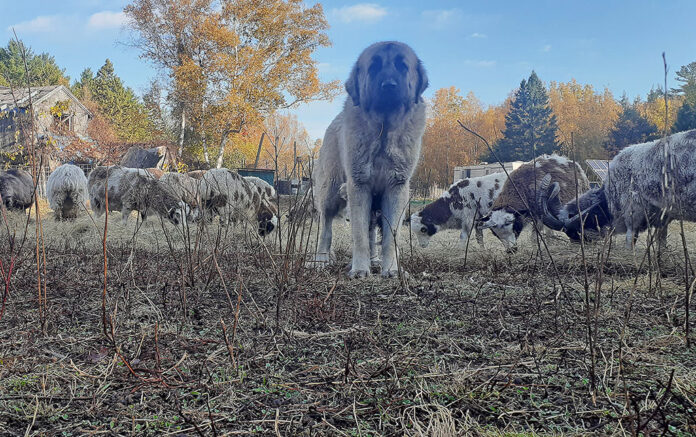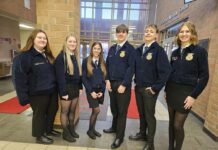
The evolution of a breeding program is made up of both conscientious science based decisions and a natural leaning towards what works best in an individual’s situation.
The dogs I am making now are both better — and not better — than the dogs I was making 10 years ago. It’s an interesting dichotomy based on an ever-evolving situation.
Adapt to change
I read an article from the American Historical Society discussing the expansion of American society and its impact on the identity of America. It got me thinking about my dogs and the different personalities and working traits I am selecting for, as the farm expands and evolves. It is a snapshot of my assertion that livestock guardian dog breeders must adapt to the changing needs of farmers and ranchers, if we want them to be successful at their jobs for generations to come.
My first dogs were explorers and soldiers, carving out territory out of untamed land, for future generations of stock to be raised in safety. While my family has lived on this property for many years, even in my childhood we only used about half of it for farming. As the years passed and children moved away, that portion was reduced further and Mother Nature reclaimed what was not being used.
Reclaiming land
When I returned home with my animals and dogs, I wanted to increase our self sufficiency and made the move to reclaim all of the property for agricultural purposes. It’s been a work in progress as we push back the surrounding wilderness (yes, those places still exist).
We are surrounded by hundreds of miles of land with no houses or people. It is mostly dirt logging roads and secluded hunting camps that have been there for a century or more. It’s a peculiar pocket of nothing. Not far from bustling urban areas, it’s positioned at the end of a little used dirt road you are unlikely to come upon even by accident.
My second generation dogs were pioneers, hacking a life out of raw land, beset upon on all sides. They worked their paws off in the beginning. I joke that we are a McDonald’s in the middle of the desert. All of a sudden, the population of available prey skyrocketed. Sheep, goats and poultry now wandered where there had only been deer, moose and small game. Dense forest became silvopasture dotted with spring lambs and calling guineas.
We’ve pushed back the boundaries slowly, keeping pace with the number of dogs available to cover. Adding dogs allows me to add more space. We are currently using about two-thirds of the property at this point. Clearing and rehabilitating land is a slow process.
Changing needs
As I bring up the current group of youngsters — four of them ranging in age from six months to 18 — I am selecting dogs for the job I have now. Personalities suited to holding our current territory and who are more suited to the cycle of nature we have developed. There are times when things are peaceful and the work is light. When they can nap in a spot of sun to offset the crisp fall air.
These new pups are taking this down time well. They step up when the occasion calls for it without hesitation, but they don’t fret the idle time either. I know this will end soon, with the coming winter and lambing season, but I can give them this time to learn and work and mature.
The oldest will go out this year when the snows come and hunting becomes more difficult. Her youth and vigor will balance out her great-great-grandfather as he nears his 10th birthday. His wisdom will help make her first real work season a success. She will also be working with two aunts.
The rest will stay closer to the house for another season, watched over by their grandmother. The cycle continues as the young go out to back up the old, to learn and grow with the changing seasons.










